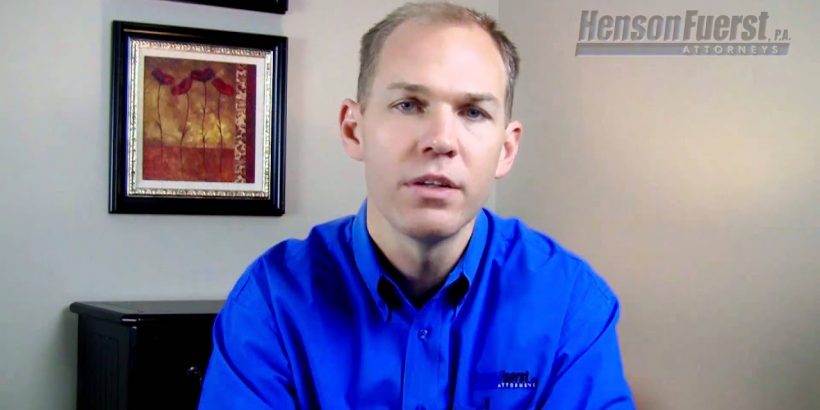We talk a lot about filing a lawsuit, but
what does that really mean? What's the process?Hi, I'm David Henson, Managing partner with
HensonFuerst Attorneys Once the decisionis made to file suit in your automobile wreck
or other personal injury case, your lawyerleaps into actionThe first major step is to research the applicable
laws as they relate to the specific factsof your case Then, we draft the lawsuit paperwork,
which is called the “complaint
“ Afterthe complaint is filed at the courthouse,
the court issues official notices of the lawsuit,called “summonses“ These summonses and
the complaint are sent to the sheriff, whodelivers them to the defendants This part
of process, from filing suit to serving thedefendants, takes about two to three weeks
to completeDefendants then have thirty days to file an
answer to the complaint, although this isusually extended to sixty days by the defendants'
attorney
Once the answer is filed, the next step is
called “discovery,“ which is where eachside gets to learn (or “discover“) all
of the basic facts of the case There aretypically two parts of discovery: written
and oral Written discovery involves the exchangeof written questions known as “interrogatories“
The defense lawyer will send us written questionsregarding how the accident occurred, your
previous medical history, and your injuries
We also send similar written interrogatories,
asking the other parties questions about howthe accident happened, eyewitnesses, defenses
they may have, etc Each side has thirty daysto answer those interrogatories, but, again,
this is usually extended to sixty daysAfter the written discovery, the next step
is “oral discovery,“ when lawyers getto ask questions in person The lawyers for
both sides gather with the plaintiff and defendantsto take “depositions,“ which are sworn
statements, questions answered under oathand then typed into a transcript
We always
advise our clients in detail about what toexpect during a deposition so they are not
taken by surprise during the questioningOnce depositions are completed, the next step
is usually “mediation,“ which is a court-orderedprocess to see if there is any way to avoid
going to court A specially trained mediatorworks with both sides to open lines of communication
and facilitate settlement discussions withthe hope that the parties can resolve case
on their own The mediator does not make anybinding decisions, but simply determines if
there is any room for negotiations withinthe context of the lawsuit
A great number
of cases settle at mediationIf mediation doesn't work for your case, then
we proceed with the case by picking a trialdate, and conducting depositions of witnesses,
your treating physicians, and any other peoplewho might have relevant information Once
we have all that information, we can completepreparations to have your case heard in a
trial before a judge and a juryWe tell clients to expect a one-and-a-half
to two-year period from the date they filesuit until their case goes to trial
Although
the attorneys at HensonFuerst try to moveeach case as quickly as possible, unfortunately,
the legal system in North Carolina is complicated,with intricate rules and requirements that
keep cases moving slow as molasses As yourattorneys, our job is to move your case as
swiftly as possible, while also building yourcase as strong as possible so that you stand
the best chance of being fully compensatedfor your injuries
